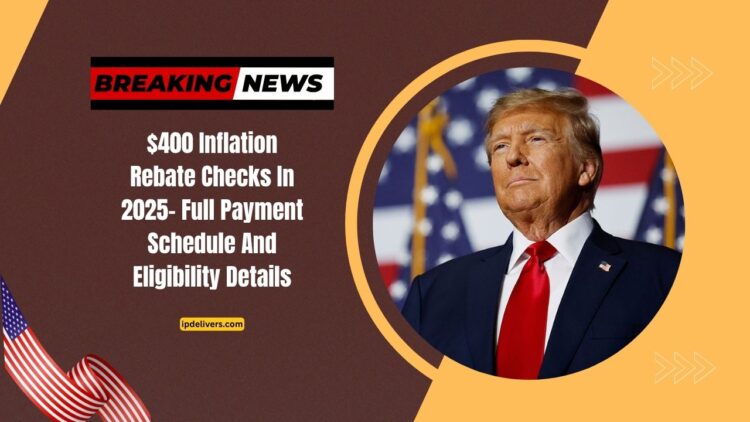In response to growing inflationary pressures, New York Governor Kathy Hochul has announced a $400 stimulus payment aimed at providing much-needed economic relief to families struggling with rising costs.
From October to November 2025, eligible New Yorkers will begin receiving these inflation rebate checks, offering a financial lifeline amidst soaring prices for essentials like gas, rent, food, and utilities.
Why This Payment Matters in 2025
Inflation has affected every corner of the U.S., with middle-class families bearing the brunt of price hikes. In major cities like New York, the cost of living has surged, pushing households to the brink.
Recognizing this, the New York State government has introduced the $400 inflation relief check as part of the Fiscal Year 2026 budget, targeting financial insecurity in vulnerable households.
Eligibility Criteria: Who Qualifies for the $400 Payment?
The stimulus will not be distributed universally. Instead, strict eligibility guidelines ensure that the funds go to those in genuine need.
Key Conditions Include:
- Must have filed the 2023 New York State Resident Income Tax Return (Form IT-201).
- Cannot be claimed as a dependent on someone else’s tax return.
- Middle- and lower-middle-income families will be prioritized.
- High-income individuals are excluded from this round of relief.
The goal is to assist those who pay rent, manage educational expenses, and lack other financial safety nets.
2025 Payment Timeline & Distribution Method
The payment distribution is designed to be efficient and transparent, with no regional or ZIP-code discrimination. All eligible recipients across New York State will have equal access to the rebate.
Here’s the expected payment schedule:
| Event | Details |
|---|---|
| Payment Amount | $400 |
| Payment Type | Physical check (via mail) |
| Distribution Start | October 2025 |
| Distribution End | November 2025 |
| Number of Beneficiaries | Estimated 8.2 million households |
| Delivery Method | Sent through the U.S. Postal Service |
The choice of sending physical checks ensures that digital barriers do not prevent eligible individuals from receiving their benefits.
Part of a Broader Economic Vision
This one-time $400 rebate is not just a short-term fix. It forms part of a comprehensive economic strategy by New York State to address inflation and improve residents’ financial health long-term.
Additional relief measures under the FY 2026 budget include:
- Middle-class tax cuts — reduced to the lowest rates in 70 years.
- Expanded child tax credits — easing the cost of raising children.
- Universal free school meals — reducing food insecurity and supporting student well-being.
These complementary initiatives aim to increase disposable income, improve savings, and promote a more financially secure population.
How the $400 Stimulus Will Help New Yorkers
The economic strain of rising utility bills, education fees, medical costs, and everyday expenses has pushed families to dip into savings and accumulate debt. The $400 stimulus acts as both a financial and psychological cushion—a signal that the state is standing by its citizens.
This payment is expected to reignite confidence among struggling households, helping them pay off urgent bills or build a short-term buffer against continued inflation.
New York’s $400 inflation rebate checks offer more than just monetary support—they’re a symbol of government accountability and compassionate leadership.
With payments rolling out between October and November 2025, nearly 8.2 million families are set to benefit. This initiative highlights a commitment to ensuring economic stability for the most affected households, all while laying the foundation for a stronger, more self-reliant New York.
FAQs
When will the $400 stimulus checks be distributed?
Eligible recipients will start receiving their $400 checks by mail between October and November 2025.
Do I need to apply for the $400 rebate?
No separate application is needed. If you filed the 2023 New York State Resident Tax Return (Form IT-201) and meet the criteria, the payment will be sent automatically.
Will everyone in New York receive this payment?
No. Only eligible low- and middle-income individuals who meet the specific tax and income requirements will receive the payment.

